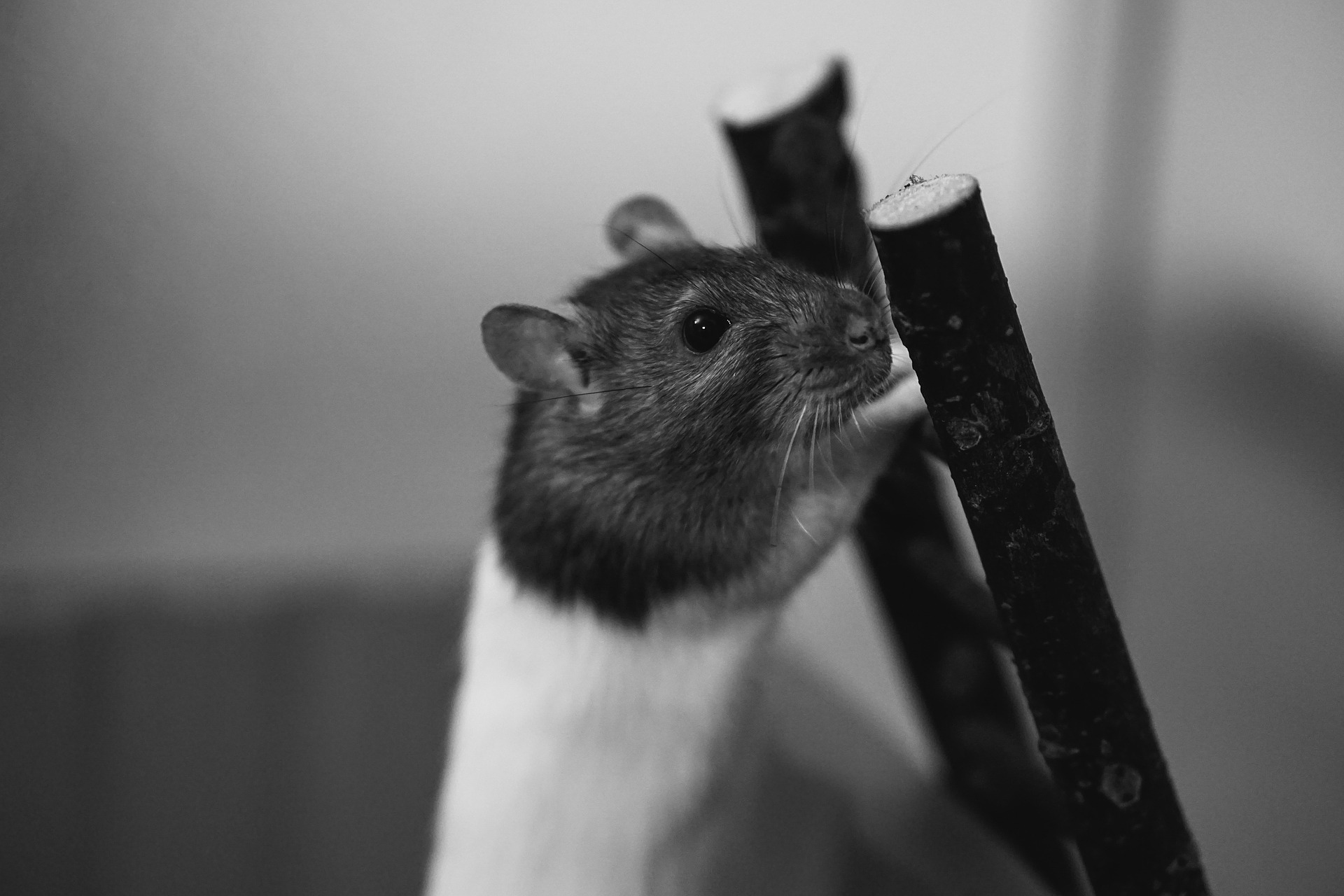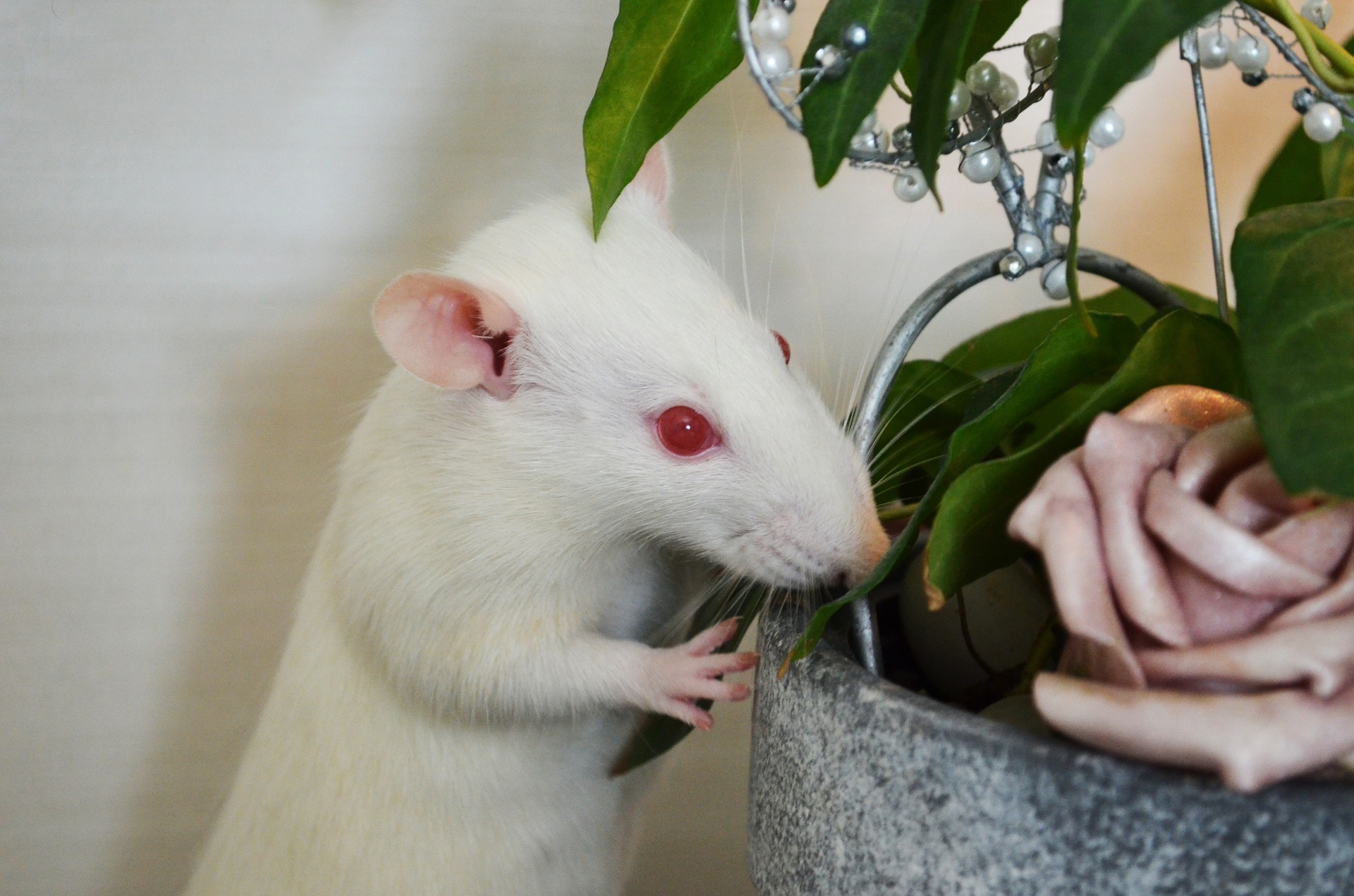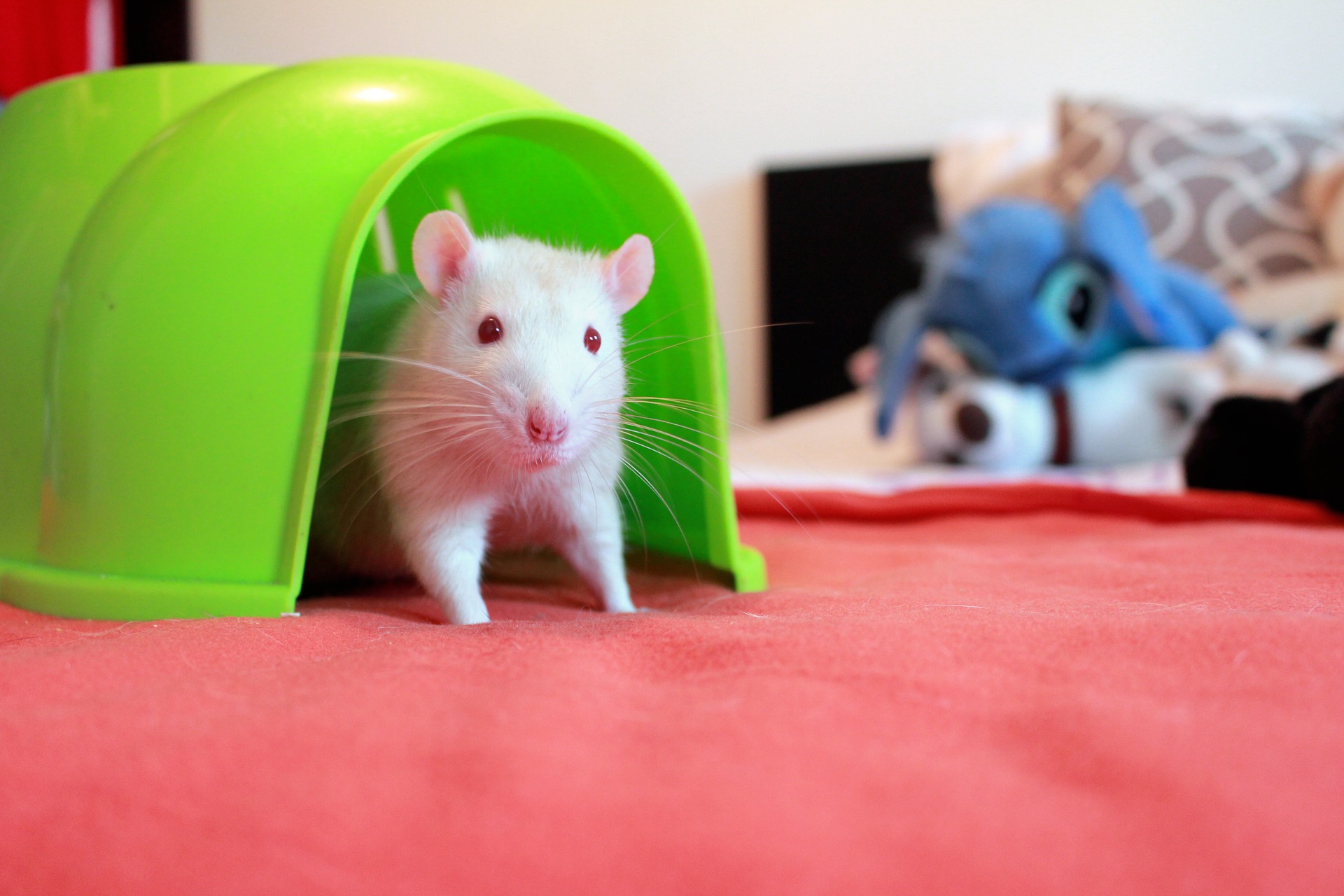Why Does My Rat Always Run for the Floor, Under Furniture, and Behind Tables?

Rats are known for their incredibly curious natures.
One moment, your pet rat might be trying to sneak inside your shirt; the next, it’s headed straight into your bag of chips!
At some point, though, your rat will learn that the world is far more vast than the bed, couch, or cage that it lounges around with you….
At that point, you’re in for tons of fun! (or, maybe not… some rats are truly mischievous!)

Why Does My Rat Always Run for the Floor, Under Furniture, and Behind Tables?
Once your rat discovers that he or she can reach the floor, their world explodes in size. They may climb about your nightstand or end tables, hide beneath your dresser or chest of drawers, and recruit your dining room table as a camping spot- fully furnished with your socks, food wrappers, and pony tails. Rats are incredibly smart, and they know when you’re coming to take them from their newly discovered territories. Therefore, they can sometimes be a pain to find, catch, and place in the cage when there are interesting activities to be done.

The Need to Explore is Very High
As intelligent as rats are, they love nothing more than learning. They love to see new places, tinker with new toys, and try new foods. Exploring is very stimulating, and it relieves boredom and curiosity. If your pet rat tends to be cooped up in a smaller space frequently, even if you’re using an ideal cage like this one, it wouldn’t be a bad idea to let him or her explore a rat proofed home. One of my rats was able to go from one end of a 1,200 square foot apartment to the other in just a matter of seconds; with his favorite cat following him. They frequently chased each other, and absolutely loved to play. They always looked for each other when I would arrive home from work, and they always found new places to hide and play! If your rat is alone, he or she may become depressed, so be sure that your rat has a friend. I would never recommend a cat- rats are a common prey animal for cats, and MOST cats cannot be trusted with rats. This is my unique situation, so do NOT try this at home; my cat is a very weird creature, and I don’t think he thinks he’s a cat, either.

Exercise Is Important for a Rat’s Health and Lifespan
An unhealthy rat may not live nearly as long as his healthier counterparts. For rats in captivity, the unhealthy rats tend to be quite overweight and rather inactive. Rats are perfectly content with sitting and eating all day; it is one of the things that they do best. However, they love to run, bounce, boggle, and play. In combination with a healthy diet, allowing a rat to fulfill his or her instinct to exercise and explore will keep the animal’s body healthier in many ways. In the wild, rats are constantly running around in search of food (both hunting and scavenging), water, mates, warmth, and ideal nesting areas. Cages restrict movement, and don’t allow for this natural behavior.
When I read that a rat is peeing all the time I wonder how healthy that is for my home. I love to let them run, and they love to run. I don’t find rat poop all over the place, but I also don’t see pee. However, if they are, then I am concerned about our health. Would like some feed back on this.
Hello Gayle! As long as your pet rats are healthy and aren’t exposed to wild mice or rats, it’s only as much of a concern as having other indoor pets (such as dogs and cats.) Dogs will scrub their rumps on carpets, cats will dig in a litter box and walk around the home, and both will lick their owners or sleep in their beds. In addition, dogs can bring ticks indoors that could potentially carry Lyme Disease or cause Alpha Gal Syndrome. When you think about it, pets all-around are not exactly sanitary in the home; but we love them, and we all take that risk as pet owners! With regular cleaning, you should not have too much of an issue. I think the most significant factor here is preventing wild critters from coming indoors; if wild mice or rats urinate throughout your home, your pet rats could be exposed to disease, as well as your family.